Graham Reid | | 8 min read
Treaty
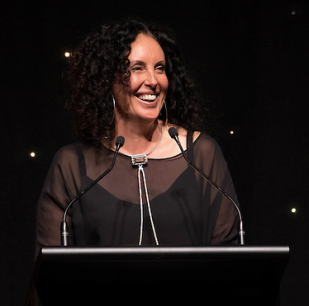
Editor's note: On the evening of September 29, Moana Maniapoto was inducted into the New Zealand Music Hall of Fame at the APRA Silver Scroll awards. This was an acknowledgement of decades of work as a songwriter/performer.
But Moana (Ngāti Tūwharetoa/Tūhourangi-Ngāti Wahiao) was always more than that: She has been a powerful voice for Maori (especially Maori women and youth), a political activist, a filmmaker, a cultural ambassador for Maori and New Zealand, has literally put te reo, waiata, haka and taonga puoro on the world stage.
And she has articulated the concerns of many in Aotearoa New Zealand when it comes to race relations, land and resource rights for Maori, the creep of globalisation and marginalisation of the poor.
She has done that -- with her first band the Moa Hunters and latterly The Tribe -- in a catalogue of songs which draw on rock, soul, reggae, electronica, hip-hop and of course her own musical traditions.
Hers is an extraordinary body of work and Elsewhere has long placed her at the forefront of music of our country.
It is a privilege therefore that, with her permission, we publish here an edited version of her speech of acceptance (there were amusing digressions from the script on the night) to let everyone see her words and consider them . . .
When I told my son I was nervous about speaking tonight he said, “You’ll be right. Just don’t go on, don’t get all political and don’t be annoying.” Given I’ve built a career on all three, why stop now?
My eight-year old told her playmates that her mother had been “abducted by the Hall of Fame.” It certainly felt like that over the last two weeks when various journalists and friends have congratulated me for being “inducted, induced and even indicted” (thank you Willie Jackson).
My first response after reading the letter from Anthony Healey (head of APRA NZ) was to measure myself against the stellar line up as well as many of you here in this room and many who aren’t here. I could only see my flaws and weaknesses.
And I can still hear Dalvanius in my ear.
-
You are not the star – the reo is the star
-
Be nice to people on the way up, you’ll meet the same ones on the way down
-
Don’t believe your own publicity.
Every argument I had against accepting this most amazing invitation was anticipated by the wily Mr Healey – must be his legal training.
The only way I could get my head around this was to see it as acknowledgement of the whakapapa of Māori music. From our tūpuna to the latest winners of the Smokefree Rock Quest and finalists in this years Maioha Awards, to those whose best work is yet to come, I accept this honour with grace and pride that my own work has formed part of the continuum. And with this whakatauaki in my mind.
Ēhara taku toa i te toa takitahi, he toa takitini. My achievements aren’t mine alone but of the many.
It’s not about me.
Just as my music has been enriched by amazing creatives - producers, singers, writers, warriors and musicians - so it has been and continues to be informed and inspired by those outside the music industry - incredible thinkers, visionaries, activists, academics and artivists.
This award has been a true gift. Because I’ve been focused on my next album, gigs and tour, it gave me the opportunity to reflect on where I have come – and to be grateful to those who have empowered me.
I’d like to acknowledge my family who are here with me tonight.
My sister Trina is my right hand man in our band.
Our brother Maru and sisters Niki, and Keri Lee are here with our mother Bernadette.
Youngest sister Lisa is the principal at Whangara School on the East Coast. She is visiting Stanford University with a group of students from Ngāti Porou.
Our father Nepia would have loved this.
Toby Mills. I think our first ever public date was an APRA event. As a producer/director (all round bossy type), he is tailor made as a tour and stage manager. Thank you for your support my darling. And I want you to remember one thing – I’m not driving tonight.
Sol de Sully came to me in 2002 with an offer I couldn’t refuse. Sol continually opens my mind to new music from around the world and is my biggest fan and critic. And that’s what a good manager should do, they should tell you when you do good and when what you do isn’t –
Unless your manager happens to be your husband.
My former husband Willie Jackson is a great plotter. He was a wonderful manager. It was he that joined me up with various bands, including Aotearoa – and accompany to pubs, clubs and gangpads. It was he who went up to Dalvanius and announced; “my missus can sing better than those sheilas behind you, you should record her. He did and we did.
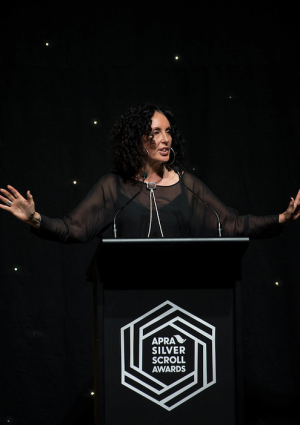 Willie would plot and our
dear friend and housemate Wyn Osborne day in and day out. Our band
toured Australia, US and Canada. At the same time, we would
continuously call the music industry and NZ radio out on racism –
when no one else was doing so.
Willie would plot and our
dear friend and housemate Wyn Osborne day in and day out. Our band
toured Australia, US and Canada. At the same time, we would
continuously call the music industry and NZ radio out on racism –
when no one else was doing so.
Music his given me a profile and platform to join the chorus. I’m so proud of what we achieved. Thank you Willie – and to the Jackson whanau and our people in South Auckland.
Journalists always ask – what came first, the music or the politics?
The truth is when you are Māori, you are a living breathing political statement. You are part of an incredibly dynamic and diverse matrix based on relationships, both physical and spiritual – and rooted in core values. Yet you are living in a parallel universe because in the real world, those things that make you Māori, make you ‘the other.’
When I look back over my body of work, I can track the last 30 years of being Maori in Aotearoa because my music has responded to what’s going on around me – the stories, the issues, the complexities, excitement, wonder and pain.
We never really heard our language on radio or television. But for most of the ‘80s, I wanted to be black. Even though Willie and I were involved in a lot of community and activist movements and learning our language, when you don’t hear your language on the radio or see yourselves on television, it’s easy to get the impression your culture doesn’t count.
I still remember how I felt hearing Maranga ake ai (Aotearoa) and Rua Kenana (Dread, Beat & Blood) – but in my world of South Auckland, I really wanted to be Chaka Khan.
Detroit.
With every music video we did, we were on a mission to shove as much Māori into the faces of every New Zealander that we could. It was about us feeling good about ourselves. Look. Here’s another koru. Here’s “Moko” – that’s us. “The treaty won’t go away.” Be very clear on that. “Walk the talk of my ancestors” – take that. We are here. We are not going away. I remember once singing AEIOU in the Wellington Town Hall and hundreds of school children stamping their feet to the beat and chanting along with us.
Willie and I spent years challenging the music industry and commercial radio. Why wouldn’t we? The music industry was a microcosm of society.
Outside our industry, our mates were shaking the tree in justice system, education, ealth, media, politics etc. And guess what? They still are.
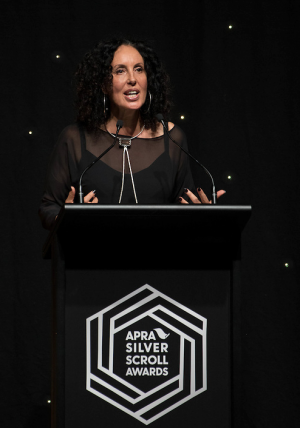 We’ve coped with
accusations of being too Māori in NZ and not Māori enough overseas.
We’ve coped with
accusations of being too Māori in NZ and not Māori enough overseas.
In 1994 I called NZ radio racist. Māori language music has always been treated as a genre itself. You want to talk about alternative and underground music? That’s Maori language music. It’s music that crosses all genre from electonica, to dance, reggae, R&B, soul to heavy metal, yet is not heard on commercial airwaves. The classic excuse has always been it doesn’t fit the format.
You can’t give kids paleo if they have been eating fast food all their life.
It’s been 30 years now. There are more and more Pākehā who understand that what’s good for Māori is good for everyone, who understand that there is no such thing as equality when there are inequities built into the system.
Yes I know we have the internet and iwi radio. But it’s time for the Crown to institute a quota for Māori language music on every radio station that plays NZ music – because its good, because it really is NZ on Air, because we have a treaty. It also needs to fund an independent Māori Music Industry Commission to work alongside all the industry bodies for the good of our country in both cultural and economic terms. The NZ industry can remain a microcosm of NZ society or it can be a pioneer.
The thing I’ve discovered after travelling with Moana & the Tribe for 14 years is that
Māori are globally hot, even if we are locally not. Olympia / back of a truck in Ouvea / UN / Montreaux Jazz Festival / clubs in Istanbul and Berlin – when we performed in Moscow, students staged a protest at the University of Humanities because they wanted to learn Māori.
Because that’s all you can do if you want to live your life with passion. When you are being authentic, music has the power to cross borders, connect with strangers, bring people together and build relationships. That’s what the last 30 years have taught me. Once you start building relationships, you can start making change.
The Māori story, experience and yes, our music, resonates strongly with people overseas. We take songs with us that hold stories about the Moriori, the Māori Battalion, land, language and people. It speaks of identity and pride – about who we are as a nation.
The arts have been not so much a window to the world but a mirror into our own. There are many people in the world looking looking for a future that’s grounded in a different set of values. Going global has taught me that.
Moana & the Tribe 14 years – loads of laughs, adventures, dramas going global.
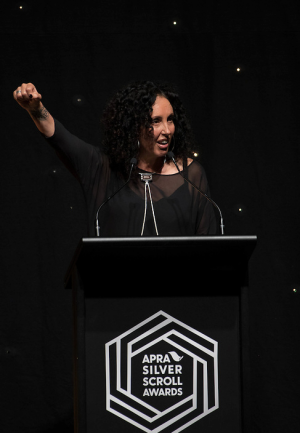 I have tried so hard to
name-check the incredible tribe of creatives who have enriched my
music across my two bands.
I have tried so hard to
name-check the incredible tribe of creatives who have enriched my
music across my two bands.
Trina, Amiria, Paddy Free, Marika Hodgson, Mickey Ututaonga, Karlos Tunks, Mahuia, Horomona . . .
Warriors: Laurence Kershaw, Eds Eramiha, Tamihana Morunga, Kemara Kennedy - huge role call – Te Hira Paenga, Paora Sharples, Aaron Hapuku, Aneta Morgan....
Scotty Morrison, Cadzow Cossar, Sol de Sully
Moahunter days – eight years breaking new ground
Mina Ripia, Teremoana Rapley - many other beautiful female vocalists
JD, Pete Hoera, Brent Turner, Richie Campbell, Warren Morgan, Hareruia Aperahama.
Angus McNaughton – fun factor of creating new dance music – sampling haka stamps, poi beats, taonga puoro … and Daniel Barnes
Murray Cammick (Southside Records), Danny, Bennet, Bryson from Dam Native, Kerry Brown, Neil Cruickshank, George Hubbard and Tim Moon (Tangata Records), Maree Sheehan, Emma Paki, Hinewehi . . .
I want to thank APRA AMCOS for this extraordinary honour and acknowledge the work of my dear friend Victoria Kelly, an artivist if ever there was one.
And finally, something for everyone in this room.
Consider how you can influence and make a difference...
And from Reverend Al Sharpton, who rocked it in that Detroit Baptist Church so many years ago: “You’ve got to stand for something. If you don’t stand for something, you’ll fall for anything.”
Photographs of Moana Maniapoto used with permission of Topic Images.
Other Voices Other Rooms is an opportunity for Elsewhere readers to contribute their ideas, passions, interests and opinions about whatever takes their fancy. Elsewhere welcomes travel stories, think pieces, essays about readers' research or hobbies etc etc. Nail it in 1000 words of fewer and contact graham.reid@elsewhere.co.nz.
See here for previous contributors' work. It is wide-ranging.

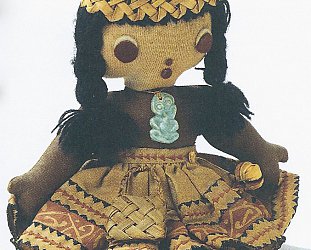
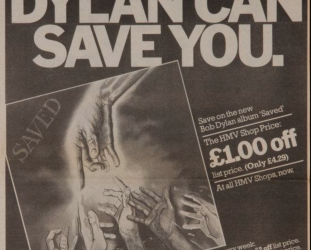
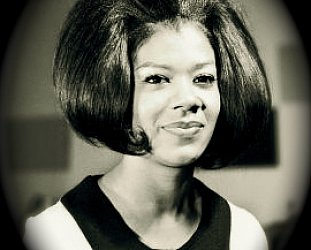
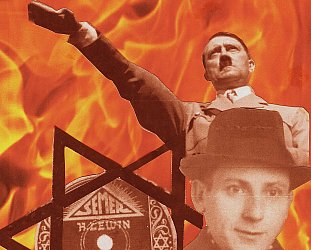
post a comment